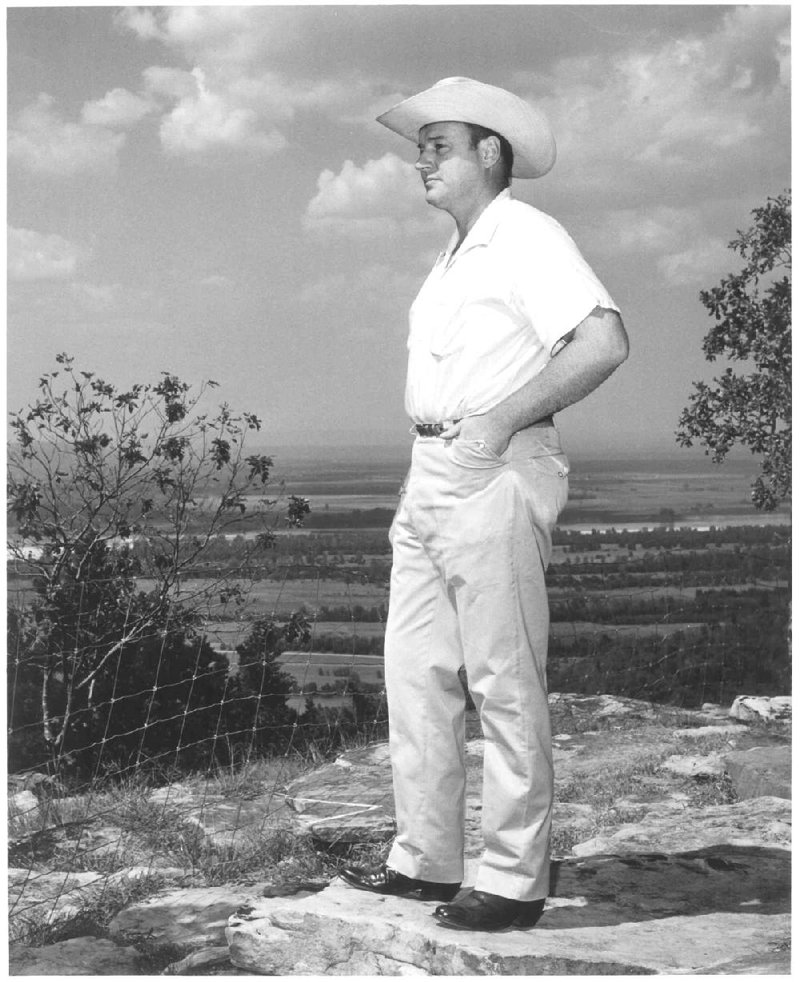As the 20th century came to a close, I was asked by the host of a Little Rock radio show to list the top 20 events that affected Arkansas politics during the previous 100 years. I ranked the 1957 integration crisis at Little Rock Central High School first, the 1966 election of Winthrop Rockefeller as governor second, and the 1992 election of Bill Clinton as president third.
"What?" the host asked. "How can you rank the Rockefeller election ahead of the Clinton election?"
I reminded him that he asked that the rating be based on its effect on state politics, not national politics. I noted that without a Winthrop Rockefeller, a Bill Clinton might never have been possible. Rockefeller's victory over Democrats Jim Johnson in 1966 and Marion Crank in 1968 forced the Democratic Party to move away from its segregationist past and make way for a new breed of politician. Johnson, Crank and their ilk were out. Dale Bumpers, David Pryor and a host of other young progressives were in.
In December 1966, as Rockefeller prepared to take the oath of office as the state's first Republican governor since Reconstruction, Time magazine published a story on the state. Here's the picture of Arkansas that the newsmagazine painted as Orval Faubus left the governor's office after a dozen years: "Well into the 1950s, the state ranked at or near the bottom of virtually every index of progress, from literacy to average income to the number of dentists per capita. Though the Legislature in the '20s dubbed Arkansas the Wonder State and later more modestly renamed it the Land of Opportunity, by the early '40s the brightest opportunity for young people moving off the farms lay in a one-way ticket to another state. Those who managed to get a good education found little reward for their learning back home; a competent technician could ask higher wages with half a day's bus ride in almost any direction. State government was hampered at every level by an anachronistic constitution enacted in 1874, which, as Arkansans point out, was two years before Custer's last stand."
Rockefeller was in office for only four years, but he changed the trajectory of this state. There are several important Arkansas institutions that keep his legacy alive. Rockefeller died in 1973 and left most of his estate to the Winthrop Rockefeller Charitable Trust. The trust in turn created the nonprofit Winthrop Rockefeller Foundation with a focus on education, economic growth and social justice. A second nonprofit organization, Winrock International, works around the world to protect natural resources and provide economic opportunity. It builds on the research Rockefeller was doing at his ranch atop Petit Jean Mountain.
This year marks the 50th anniversary of Rockefeller being sworn in as governor. As I pointed out in the essay on the cover of this section, no place in Arkansas meant as much to Rockefeller as Petit Jean. The Winthrop Rockefeller Foundation and Winrock International are based in Little Rock. The Winthrop Rockefeller Institute, on the other hand, is on the grounds of the Rockefeller ranch on Petit Jean and does more than any organization to educate Arkansans about Rockefeller.
Within months of Rockefeller's death, Winrock International was established on 188 acres that had served as the heart of the ranch. For three decades, the global development organization called the mountain home before choosing to build a new headquarters in the Riverdale area of Little Rock. With the move off the ranch, the property reverted to the Winthrop Rockefeller Charitable Trust.
The board of the trust joined forces with the University of Arkansas System in 2005 to create a world-class conference center and educational institute. Trust funds were used to remodel almost 30,000 square feet of existing space, lodging facilities were constructed, and extensive landscaping was done. More than $20 million was spent.
During its first five years of operation, WRI sponsored programs in areas ranging from agriculture to the arts. In 2007 an Arkansas Archeological Survey station was relocated to the institute's grounds.
WRI and trust board members, however, were concerned that there was a lack of focus. In trying to be all things to all people, WRI was spreading itself too thin. The WRI board hired Korn Ferry International, a nationally known executive search firm, to find a CEO with contacts across the country. Christy Carpenter, who at the time was the executive vice president and chief operating officer of the Paley Center for Media (previously the Museum of Television & Radio), was hired in 2011.
Carpenter, with the help of her husband, actor Robert Walden, helped draw attention to the institute, but tired of its remote location. She left her job in 2013. In December of that year, Marta Loyd of the University of Arkansas at Fort Smith was hired to take over. Loyd, who in her 17 years in higher education at Fort Smith was instrumental in the growth of what had been Westark Community College, dived into the job and has provided the focus WRI needs. It has become a place where those with disparate views come to discuss the state's challenges on a regular basis.
"He wasn't perfect," Loyd says of Rockefeller. "He was very much human. But despite his challenges, he found a way to effectively deal with people regardless of their position in life. We lean on his legacy as we plan events here. We're mindful of our responsibility to bring all sides of issues to the table. In keeping with his approach, this needs to be the premier place in this region of the country for people to come together in a safe environment for thoughtful discourse. Civil discourse is at the heart of everything we do."
In an era when people seem to prefer yelling at each other, it's a refreshing approach.
------------v------------
Rex Nelson is a senior editor at the Arkansas Democrat-Gazette.
Editorial on 07/02/2017

